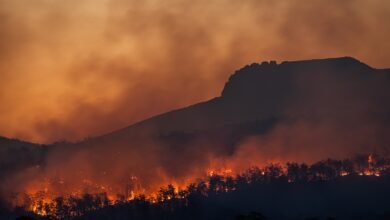
Climate change is a topic that has been discussed for decades, yet it still remains a controversial issue. While some may argue that climate change is simply part of the natural cycle of the Earth’s climate, the scientific evidence overwhelmingly shows that human activity is the leading cause of climate change. The effects of climate change are widespread and impact our planet in a number of ways.
The effects of climate change can be seen in various forms, including rising sea levels, higher temperatures, more frequent and severe natural disasters, melting glaciers, and changes in rainfall patterns. These effects have significant implications for our planet as a whole, as well as for the economy, health, and well-being of people and wildlife.
One of the most visible effects of climate change is rising sea levels. As temperatures rise, glaciers and ice caps are melting, causing the sea level to increase. This is particularly concerning for low-lying areas, such as island nations, coastal cities, and river deltas, as they are at risk of flooding and soil erosion. In addition, rising sea levels can lead to more powerful and frequent storms, which could cause significant damage to infrastructure and people’s lives.
Another effect of climate change is changes in temperature. As greenhouse gases accumulate in the atmosphere, they trap heat and increase the Earth’s temperature. This warming trend has been observed over the past century, and it is projected to continue in the future. Changes in temperature can have a significant impact on ecosystems, as well as on human health. Warmer temperatures can lead to more severe heat waves, causing dehydration, heat exhaustion, and heat stroke. This has implications not only for individuals, but also for public health systems and emergency services.
Natural disasters, such as hurricanes, tornadoes, and wildfires, have become more frequent and severe due to climate change. These events have devastating effects on communities, destroying homes, businesses, and infrastructure. They also have long-term social and economic impacts, as people struggle to rebuild their lives in the aftermath.
Melting glaciers and changes in rainfall patterns are also effects of climate change that can have significant implications for the planet. Melting glaciers have been causing the sea level to rise, as well as threatening the water supply for millions of people who depend on glacier-fed rivers. Changes in rainfall patterns have resulted in more frequent droughts and floods, which can cause severe damage to crops and communities.
FAQs:
Q: What is climate change?
A: Climate change is a long-term shift in the Earth’s climate, primarily caused by human activity, such as burning fossil fuels, agriculture, and deforestation.
Q: What are the impacts of climate change?
A: The impacts of climate change include rising sea levels, higher temperatures, more frequent and severe natural disasters, changes in rainfall patterns, and melting glaciers.
Q: What can we do to stop climate change?
A: We can reduce our carbon footprint by using renewable energy sources, reducing our waste, using public transportation or cycling, and supporting policies that reduce greenhouse gas emissions.
Q: Can climate change have positive effects?
A: While some argue that increased carbon dioxide in the atmosphere could lead to better crop yields, the negative impacts of climate change outweigh any potential benefits.
Q: Is it too late to stop climate change?
A: While some effects of climate change are already irreversible, such as rising sea levels, reducing greenhouse gas emissions can still mitigate the worst effects of climate change and improve the future of the planet.
[ad_2]




